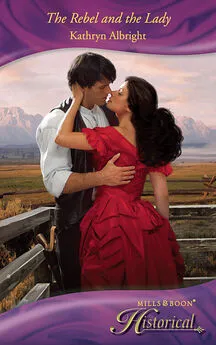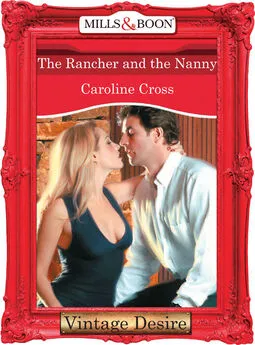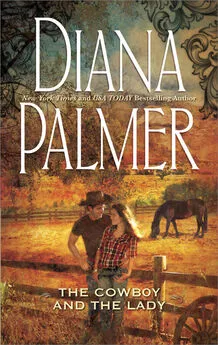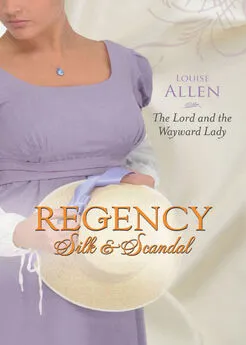John Creasey - The Toff and The Lady
- Название:The Toff and The Lady
- Автор:
- Жанр:
- Издательство:неизвестно
- Год:неизвестен
- ISBN:нет данных
- Рейтинг:
- Избранное:Добавить в избранное
-
Отзывы:
-
Ваша оценка:
John Creasey - The Toff and The Lady краткое содержание
The Toff and The Lady - читать онлайн бесплатно полную версию (весь текст целиком)
Интервал:
Закладка:
“I question very much whether the people at the nursing home did all they could to help to restore madame’s memory.”
“They were under medical supervision,” Rollison reminded him.
“You will remember, sir,” said Jolly, “that Dr. Renfrew is the family physician of the Barrington-Leys.”
“And Dr. Cray is a hard-bitten police-surgeon,” said Rollison.
“Of course, sir. We do not know, however, what instructions Dr. Cray gave to the matron, and we don’t know whether they were carried out. You will forgive me for saying so, sir, but anyone who wished to revive a lost memory might attempt to do so with music—it is, I believe, an elementary process in the practice of a psychologist. Why has it not been tried?”
“She’s been ill.” Rollison said. Out of talks with Jolly much that was obscure often came to light.
“Our inquiries at the nursing home elicited the information that Lady Lost was still suffering from the effects of the poison,” said Jolly, “but she came straight from there to here and we cannot say that she is in poor health at the moment. Obviously she made an excellent recovery, but we were not given that impression when we last inquired, four days ago.”
“No, we weren’t,” agreed Rollison.
“If we were to find out what instructions Dr. Cray gave, we could then find out from the lady whether they were carried out,” said Jolly.
“It’ll be my first job in the morning,” said Rollison.
“I am glad that the suggestion finds favour, sir,” said Jolly.
“There are one of two other matters of which you have doubtless thought. If we were to take the coat and the dress to a furrier and dressmaker, we might learn more.”
“I had made a note of that one,” said Rollison, “but Grice has probably tried it.”
“I doubt it, sir. There were no name tags or maker’s tags, and I think it likely that the police will have been satisfied with that, especially since the lingerie was of American manufacture. That is another interesting point, sir; I think we might make inquiries in America. A photograph would reach there in a very short time if sent by air, and your friends in New York would undoubtedly be only too glad to help.”
“You’re getting better, better and better,” said Rollison.
“Thank you,” murmured Jolly. “Then there is yet another matter, one which you can hardly be expected to have discovered, sir. In the last few weeks I have taken the liberty of making certain inquiries, and while none of them appear to have any great importance, there is a factor which I am sure will interest you. I made the acquaintance of the butler at Barrington House, and several others of the staff. Two things emerged, sir. First, that Farrow the footman whom we saw to-night was engaged only recently with the approval of the plump Mr. Pomeroy.”
“Was he, by George!”
“He was, sir, and the staff dislike him very much indeed,” said Jolly. “In fact they have the impression that Farrow was engaged by Mrs. Barrington-Ley because Mr. Pomeroy—er —requested it.”
“Or ordered it,” said Rollison.
Jolly smiled. “The butler has a very neat turn of phrase, sir. The subject of the footman was not discussed until last evening. The other matter I have known for some time, but I did not at that juncture see what useful purpose would be served by advising you.”
“Out with it,” urged Rollison.
“The butler believes that Dr. Renfrew has an understanding with Miss Gwendoline. In fact he is a friend of the family, which doubtless explains why so youthful a doctor is employed. I have tried to get details as to Dr. Renfrew’s reputation, and I must say that in the profession he has the reputation of being a brilliant young doctor, and he is very well-liked by the staff at Barrington House.”
“I see,” said Rollison, a trifle heavily. “I’ll have a shot at Renfrew, too. Farrow seemed reluctant to send for him I remember—that’s worth keeping in mind.” He stifled a yawn. “I think we’ll get to bed. Where have you put the maid?”
“In my room, sir,” said Jolly, getting up at once.
“And what about you?”
“I shall put two chairs together in the hall, and be perfectly comfortable, I assure you.”
“I see, said Rollison. “You’re a good chap, Jolly.”
He was getting into bed when the telephone rang.
He had an extension on a bedside table, and settled himself on the pillows before he answered. He saw Jolly’s shadow near the door.
“Hallo,” he said.
“Rolly,” said Grice, and Rollison sat up. “I’m sorry it’s so late,” went on Grice, “but there are one of two things I must know now.”
“Fire away,” said Rollison.
“What do you make of the footman at Barrington House?”
“Precious little, except that I wouldn’t trust him an inch,” said Rollison. “He could have caught the little man with the knife.”
“I see,” said Grice. “It doesn’t much matter about that— we ’ ve caught the little man.”
“ What? ” exclaimed Rollison, and Grice laughed in triumph.
“I thought that would shake you. There was a man answering your description whom we knew lived in London and who has been known to use a knife, so we pulled him in and he talked.”
“This is progress!” exclaimed Rollison. “Has he talked much?”
“He says that he was hired to kill Gwendoline Barrington-Ley, but he can’t or won’t give us the name or description of the man who hired him. The order seems to have passed thorough several channels. You know how these things work.”
“East End channels?” demanded Rollison.
“Yes.”
“Well, well.” said Rollison, “I’ll slip down there in the morning—that’s what you want me to do, isn’t it?”
“It might be helpful.” said Grice. “As for the footman—one of my men thinks he has seen him before. We’ve got his prints and they’re not in the records, so he hasn’t passed through our hands. You haven’t seem him before, have you?”
“No,” said Rollison.
“We’ll have to do what we can,” said Grice, and broke off, making a curious noise into the telephone. “Sorry,” he apologized, “that was a yawn. Have you learned anything from the lady?”
“She is a Serb,” said Rollison. “I thought she was going to regain her memory to-night, but it faded out again.”
“H’m, yes,” said Grice sceptically.
“Now what’s the matter?” demanded Rollison, sharply.
“Has she ever lost it?” asked Grice.
“What makes you think she might be foxing?” demanded Rollison, stretching his hand out for his cigarette case. As he fumbled with it, Jolly came into the room, took out a cigarette, lit it in a holder, and handed it to Rollison.
“Cray doubts very much whether her mind’s as blank as she says it is,” said Grice. “He told the matron to try her out with music, and we had a shot at Yugo-Slav national music as well as other from the Balkans. Reaction, nil. There isn’t much doubt that you’re right, and she’s a Serb—I had an expert have a look at her, quite early, and he said Serb or anyway Slav without any doubt. There are also other indications.”
“Oh,” said Rollison. “What about Renfrew’s opinion?”
Grice chuckled again.
“He’s a very bright young man, most impressionable, and rather like you—if a handsome woman says she’s lost her memory he’s too much of a gentleman to doubt it.”
“I see,” said Rollison, heavily. “One for and one against. Did it ever occur to you to make sure that the test was carried out?”
“Now, come,” said Grice, “that’s a reputable nursing home, and in this case the matron would obviously be so eager to make up for the slip that was made.”
“You’re more trusting than I am,” said Rollison, “but then, you’re a policeman!”
Grice laughed.
“As a matter of fact, Rolly, I’m very pleased with the day’s work. We’ve Shayle, as you know, and this little man with the knife. Also—we know one name under which your lost lady is known.”
Rollison shot a glance at Jolly, and said:
“More guesswork?”
“No,” said Grice. “We had her clothes examined. The dress didn’t help us much, but a leading London furrier said that he was sure that the coat came from Loudens, of New York. Loudens have a kind of trade mark in their work, one which only a few people know. So we radioed a photograph to Loudens and another to the New York police—what’s that?”
“I groaned,” said Rollison, glumly. “All right, she bought the coat in New York. What’s her name?”
“Lila Hollern,” said Grice. “At least, she called herself the Countess Hollern and signed her cheques Lila. She was in America for six months, raising money—she said—for the Yugo-Slav earthquake Relief Fund.”
Rollison interrupted: “Countess Hollern isn’t a Serbian name.”
“She said she was married to an Austrian count,” said Grice, “and that her husband was a political prisoner for some years. He is now supposed to be in Belgrade. Everyone in New York thought her wonderful, she raised nearly half a mill inn dollars —and disappeared with it!”
“Are these facts?” demanded Rollison, sharply.
“The money was in her name at the New York bank,” said Grice, “and was transferred to an account in England a month ago. We haven’t yet tackled the English bank; they’re touchy on inquiries, you know, and I doubt whether I shall be able to get a Court Order for an examination of her account just yet —but I hope to, soon.”
“What about the Relief Fund?” asked Rollison, with sinking heart.
“The London people only knew about her from New York,” said Grice, who was remarkably cheerful, “and she certainly convinced them in New York. I shall have a full report by cable soon. The money disappeared, there’s no doubt about that.”
“So did the countess,” murmured Rollison.
Grice said gently:
“I hate to disillusion you, Rolly, but she did turn up in remarkable circumstances at Mrs. B-L.”s first big effort for a Relief Fund, didn’t she? Had she not been poisoned, she might by now have been an active member of that fund, raking in more money.”
“Oh, yes,” said Rollison, “but it might not have been quite so simple. If you can stand an awkward question—why was she poisoned?”
“Do you have to ask?” demanded Grice. “Obviously because she is one of several people involved in the swindle. The other members did not like to think that she was to be questioned by the police. They much preferred to see her dead. That is a strong enough motive even for you.”
“It’s very ingenious,” murmured Rollison.
“I don’t think there’s much the matter with it,” said Grice, complacently. “Nor will you, when you know that Messrs. Pomeroy, Ward & Pomeroy are handling the accounts of the London Branch of the Relief Fund, as well as Barrington-Ley’s accounts. It all ties up very nicely, doesn’t it?”
CHAPTER THIRTEEN
EAST END
ROLLISON agreed that it did appear to tie up very nicely, said good-bye, replaced the receiver, and stared blankly into Jolly’s face. After a while he gave the gist of the conversation, whereupon Jolly’s hopefulness faded and was replaced by his habitual expression of gloom.
“The only bright spot,” said Rollison, “is that he doesn’t propose to make an arrest, yet.”
“Could he arrest the lady, sir?”
“He could detain her for questioning,” said Rollison. “The truth is that he thinks he can get her whenever he wants, and prefers to have an unanswerable case before doing so. He’ll probably get some kind of story from Marcus Shayle. So, Jolly, more cause for gloom! Deep gloom, because Grice has done practically everything we hoped we would be able to do ourselves—my mind hasn’t been working lately, or we would have got this information first.”
Читать дальшеИнтервал:
Закладка:










